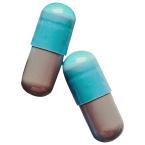Aspirin: A loaded gun for your heart
by Tom
(Spain)
Aspirin: A loaded gun for your heart
The drug companies want you to think of aspirin as a magic bullet for your heart. Oh, it’s a bullet all right — and it’s definitely aimed at your ticker.
One of the most irritatingly persistent myths in modern medicine is the downright insane notion that daily aspirin can help your heart. So I can’t tell you how it lifts my own heart to see this one finally crumbling.
Even the Wall Street Journal is giving aspirin therapy the kiss of death. A recent story with the headline “The Danger of Daily Aspirin” began with this sentence: “If you’re taking a daily aspirin for your heart, you may want to reconsider.”
Forget “may” — definitely reconsider, because this was a bad idea the moment Big Pharma’s marketing department dreamed it up.
One new study in the Journal of the American Medical Association found no benefit at all in giving aspirin to people at high risk of heart disease. My favorite part: It was funded in part by Bayer.
Must’ve been awkward when it came time to deliver the results. I’ll bet they’re looking for a refund… and a few researchers’ heads.
But the truth’s the truth… and the truth is, aspirin can cause bleeding in the stomach and brain. And that’s not the only way this
Yet despite aspirin’s obvious dangers, you can’t turn on the TV without seeing a commercial that talks up aspirin therapy for heart patients. An actress in one commercial claims, “My doctor says it’s the easiest preventive measure you can take.”
Easy — yes. Safe — heck no! Sounds like you need a new doctor, lady… one who’s been reading the medical journals instead of watching aspirin commercials.
Here’s one fact you won’t hear in those ads: Roughly half of all people who suffer a fatal heart attack took an aspirin that day. I wonder what their final thoughts were. I bet more than a few clutched their chest and cried out, “But… I took an aspirin today!”
Bottom line: Don’t gobble down daily aspirin unless you’ve got a death wish. And if you really hate life, add an ibuprofen to the mix — patients who take that and aspirin together have double the risk of fatal heart attack.
These are powerful drugs, not candy… even if many people munch on them like Skittles. If you really want to pop a pill for your heart, take a fish oil capsule instead.
Author is William Campbell Douglass II, M.D.
Source is from Vince Tracy Blog - another one from 25 March 2010
Comments for Aspirin: A loaded gun for your heart
|
||
|
||
|
||
|
||
|
||

